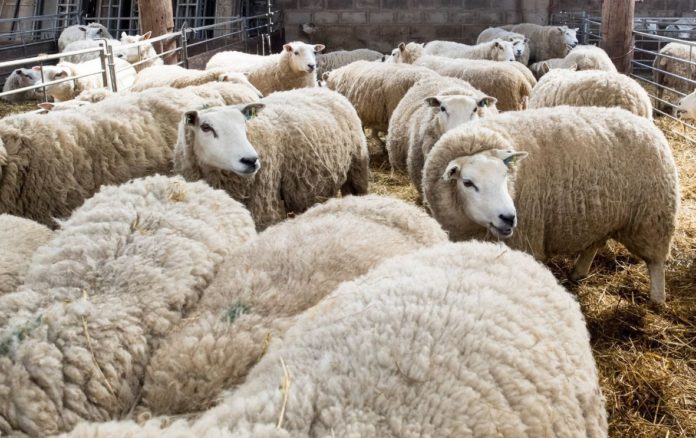In this article, FRS explains why it believes early lambing flocks should make scanning sheep a top priority.
For sheep farmers around the country, the next item on the agenda will be scanning the flock.
Some early lambers may have this task completed. However, the majority will do so in the coming weeks and months.
In terms of timeline, farmers should aim to scan sheep between 45 and 90 days in lamb.
If it is done before 40 days, pregnancy may not be fully detectable yet, and ewes could appear ‘empty’.
Scanning after 90 days becomes harder to read and may give inaccurate results on the number of lambs the ewe is carrying.
Scanning sheep
There are many benefits to scanning sheep. Farmers can use scanning results as a valuable tool to increase flock productivity and profitability.
Scanning can tell how many lambs the ewe is carrying. This is helpful as ewes can now be grouped according to if they are carrying single or multiples.
When it comes to lambing, farmers can be prepared and know what to expect from each ewe.
Nutrition
Knowing what the ewe is carrying will also help plan and implement a feeding programme.
Depending on how many they are carrying, ewes may need different amounts of feed.
Having them grouped will allow ease of management when feeding. Knowing the right amount of concentrate means that the farmers can save on over feeding.
Nutrition is key and plays a large part late in pregnancy. Nutrition can impact the ewe’s milking performance and growth rate post lambing.
BCS and grouping ewes
Keep an eye on ewes’ BCS (Body Score Conditioning) as some may need additional concentrates introduced to their diet closer to lambing.
Be clever about the grouping to save time. For example, if twin bearing ewes are not reaching their target weight, they could be grouped with triplet bearing ewes and put on a higher feed/nutrition plan.
Scanning will also identify ewes not in-lamb will allow farmers to reduce the flock and keep food supplies for those in lamb.
Lastly, farmers can use the results of the scan to plan for future breeding seasons. They may pick up on fertility issues with the ram or the need to investigate further if there are a lot of empty ewes.
Other questions farmers could consider if they wanted to introduce a more prolific breed of ewe to increase output?
Are the ewes’ Body Condition Score on target? Is there anything to change in advance of next year?
FRS’ services
FRS Farm Relief offers a sheep scanning service. Using the latest technology
FRS sheep scanning operators can scan sheep in a standing position as they pass through a specially designed crate.
During ewe scanning, there is no stress on the animal or on the farmer as all that is required is to have the sheep in suitable penning for feeding into the scanning crate.
Ewes should be completely fasted for 8-10 hours before scanning. Also, the should have a good marking system to identify barren, singles, and multiples.
More information
To find out more contact FRS Farm Relief, call 0818 890 890 or visit their website.
Read more articles from FRS.





